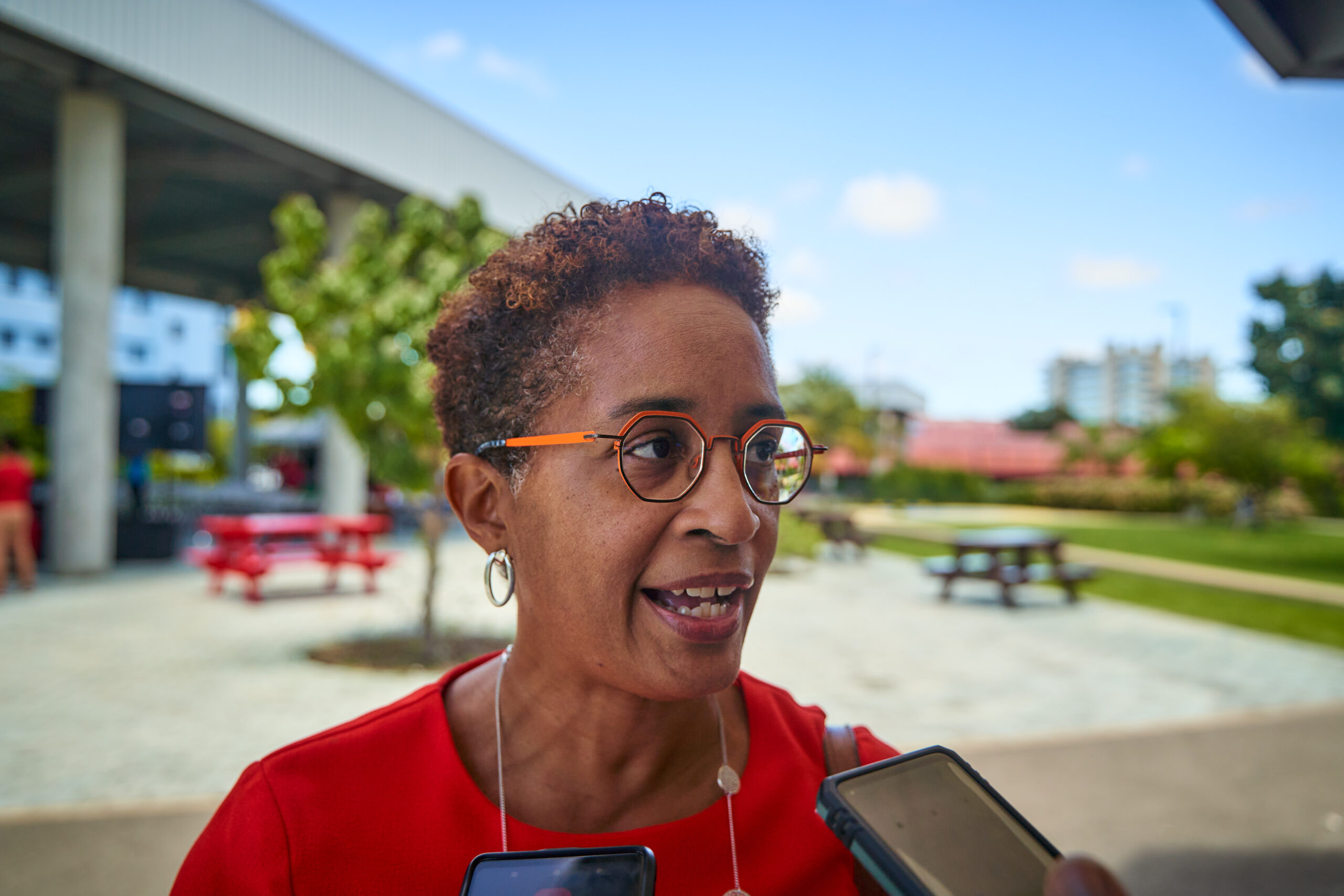Barbados Medical Association Warns of Risks as Vaccine Hesitation Persists Among Parents

March 7, 2024
Vaccine hesitation poses risks in Barbados as parents resist routine immunizations, citing social media misinformation. President of BAMP expresses concern for potential health crisis among unvaccinated youngest citizens.
Vaccine hesitation appears to have remained a by-product of the coronavirus pandemic, touching on vaccines that have been part of this country’s health system for the last 60 years, with the head of the doctor’s association fearing a “great tragedy” if the youngest citizens fall victim to deadly diseases because parents are unwilling to have them immunised.
President of the Barbados Association of Medical Practitioners (BAMP) Dr Lynda Williams voiced concerns on Wednesday about a considerable number of parents being unwilling to have their children immunised against diseases and blamed social media misinformation.
She was troubled by public comments about the government’s call for children to get immunised, she told journalists as the Heart & Stroke Foundation of Barbados launched a new media campaign on octagonal food labelling.
“It was very disheartening to see some people’s responses to the Chief Medical Officer’s call for routine immunisations to be given. All of us were protected by these immunisations from measles, mumps, and rubella, chickenpox, all of the other things we normally immunise for. Now, I find it disheartening that as a result of misinformation, as a result of social media that parents are now looking at the same immunisation schedule that protected them and saying that I will deny my child the right to be so protected,” Dr Williams said.
If the worrying trend continues, she added, Barbadians could be put at serious risk despite the massive leaps in healthcare made over several decades.
“What that means though is for the entire nation, we are at risk. We put ourselves at risk again of these infectious diseases that once eliminated children before their fifth birthday. It is a historical fact. It is easy to go back and look at the historical records and see that many children in Barbados died from vaccine-preventable illnesses until we had wholesale campaigns for vaccination,” the BAMP president said.
“I just want to encourage parents to not be carried away by social media, not be carried away by what you hear from people in other countries. These vaccines are safe, they have been around for a long time, and they have prevented this country from facing an overwhelming infectious disease burden, at a time when we are also fighting the NCD burden,” she said.
Dr Williams suggested that health officials may need to relook their immunisation campaigns to better help tackle misinformation in the public space.
“It’s a matter of relooking how we communicate, how we deal with misinformation, [and] how we approach people. These countries where the vaccination rates dropped have already seen an outbreak of measles, and given that we are a big tourist destination, one case of measles in Barbados would be a disaster.
“I want to reiterate that our immune systems cannot handle these viruses… which is why vaccination came about in the first place. It may not have killed every child that got measles but certain [there were] cardiac side effects, there were mental side effects, meningitis, all sorts of things that came about as a result of these illnesses. Therefore, to go back to that state, that place as a country where we are struggling to protect our youngest citizens, would be a great tragedy,” she said.
The immunisation schedule for infants from age two months through to children age 11 offers protection against a dozen illnesses that have decimated populations for centuries: polio, hib disease, hepatitis B, pneumococcus, measles, mumps, rubella, diphtheria, whooping cough, tetanus, tuberculosis and chickenpox.
Outbreaks of measles, one of the deadliest and most contagious infectious diseases, have been reported in Florida, the Canadian province of Ontario and the UK. The US is already on track to having one of its worst measles years since 2019, then the largest outbreak in 30 years. As of mid-February, at least 15 American states have reported measles cases and multiple ongoing, uncontained outbreaks.
shamarblunt@barbadostoday.bb


